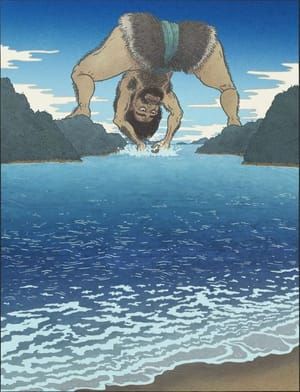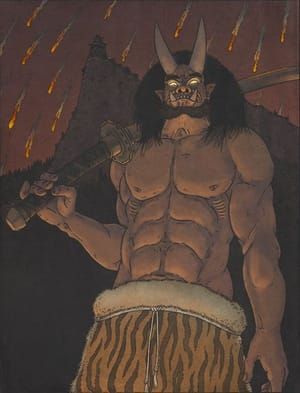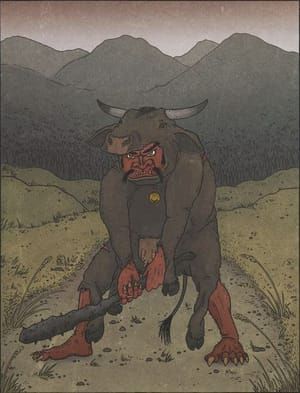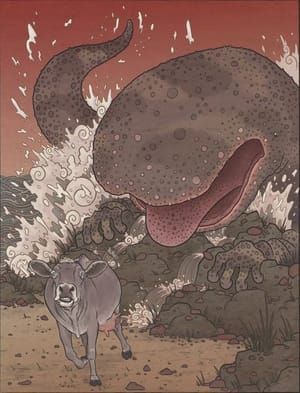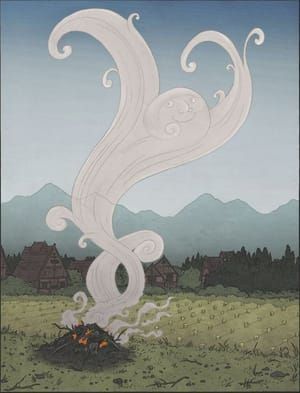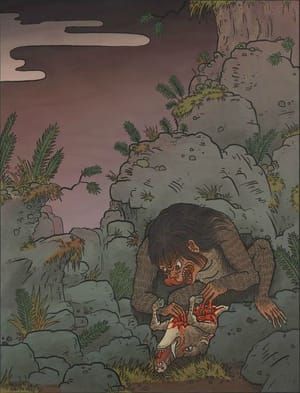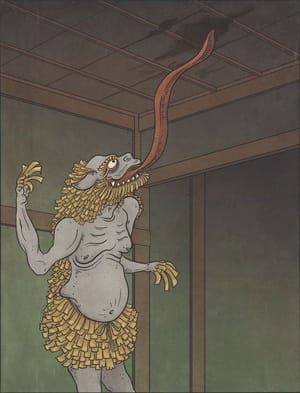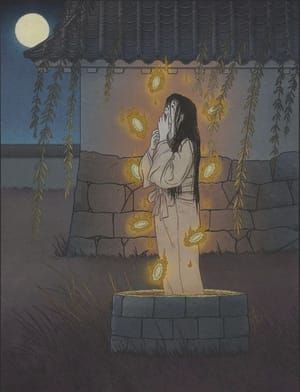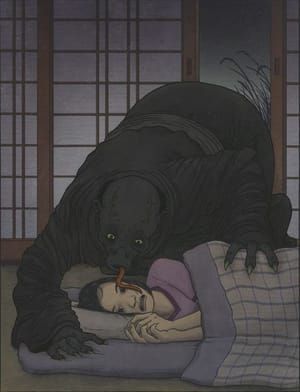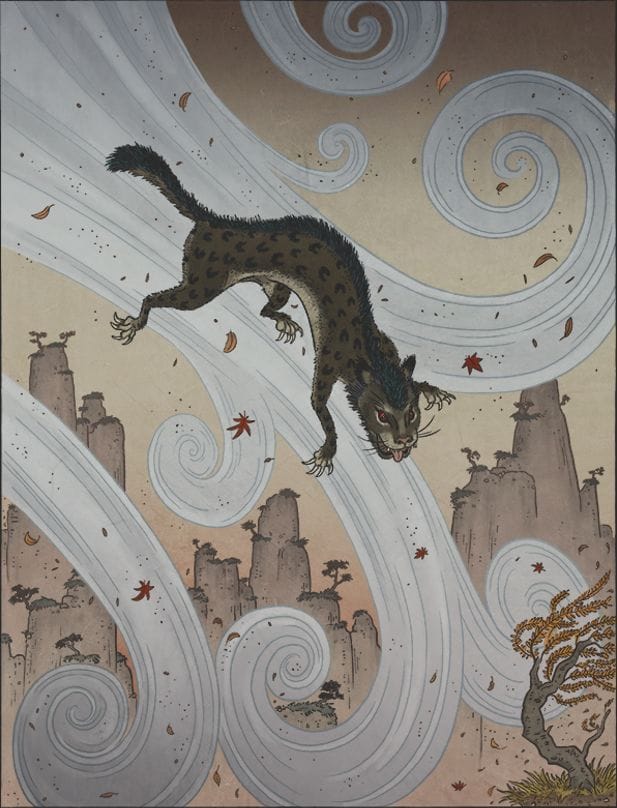

Fūri, 2017
Matthew Meyer
風狸
Fūri are wild beasts from the mountains of China. They are about the size of a tanuki or a river otter. Fūri somwhat resemble monkeys. They have red eyes, short tails, black fur with a leopard-like pattern, and blue-greenish manes which run from nose to tail.
Fūri are nocturnal, and spend the daylight hours sleeping. At night they leap from tree to tree, or cliff face to cliff face, with soaring jumps. They can moves as quickly as the wind, and resemble flying birds when they leap. They can clear the distance between two mountains in a single leap.
Fūri’s diet consists of spiders and the fragrant wood from incense trees, however they have also been observed hunting. They use a special kind of grass (the species is unknown) and climb to the top of a tree. They hold the grass out in their hands to try to attract a bird. When a bird comes for the grass, the fūri is able to catch and eat the bird.
Fūri are extremely fast, but Chinese records say that it possible to capture one with a well-placed net. A captured fūri will act embarrassed, lowering its head and looking up with big, pitiful eyes in an attempt to convince a person to release it. They are very fragile, and die immediately if they are struck. However, if you try to slice them up with a sword or knife, the blade will not cut through their skin. If you try to roast them with fire, their bodies will not burn. They have the amazing ability to revive from death merely if wind blows into their open mouths. However, they cannot revive if their skull has been broken, or if their nose is stuffed with leaves of Japanese rush (Acorus gramineus), a wetland shrub.
Fūri appear in various Chinese atlases of herbology and medicine. These were referenced by Japanese authors during the Edo period, causing fūri to be incorporated into Japanese folklore. The original description of the fūri is most likely based on the colugo—a gliding mammal native to southeast Asia. There are no colugo in Japan, which is likely why Japanese folklorists described them as a subspecies of tanuki.
Matthew Meyer
artistArthur
coming soon
